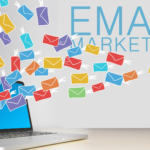In today’s fast-paced digital landscape, businesses are constantly looking for innovative ways to connect with their audiences. Enter Artificial Intelligence (AI), the shiny new tool in the digital marketing toolbox that’s revolutionizing the way companies engage with customers. It’s like adding a turbocharger to your marketing strategy—faster, smarter, and ready to take you places!
But what exactly is AI doing in the marketing realm? How is it changing the game, and what do you need to know to stay ahead of the curve? Grab a comfy chair, perhaps a cup of coffee (or tea if you’re feeling fancy), and let’s dive into this fascinating world where machines are making marketing more intelligent.
1. The Basics: What is AI?
Before we dive into the nitty-gritty of digital marketing, let’s clarify what we mean by AI. Simply put, Artificial Intelligence refers to the simulation of human intelligence processes by machines, especially computer systems. These processes include:
- Learning: The ability to improve performance based on past experiences and data.
- Reasoning: Making decisions based on available information.
- Self-correction: Adjusting strategies and actions based on feedback.
Think of AI as your marketing assistant that never sleeps, never eats, and never complains about coffee runs—ideal, right?
2. How AI is Shaking Up Digital Marketing
Now that we have a basic understanding of AI, let’s explore how it’s changing the digital marketing landscape. Here are some of the key areas where AI is making a significant impact:
2.1 Personalized Marketing
Gone are the days of one-size-fits-all marketing. AI is helping businesses personalize their marketing efforts like never before. With advanced algorithms, AI can analyze consumer data to understand preferences, behaviors, and trends. This means marketing messages can be tailored to individual customers based on their unique tastes.
Example:
If you’ve ever received an email from a store featuring products that seemed to be picked just for you, you’ve experienced AI-driven personalization. Brands like Amazon and Netflix use AI to recommend products or shows based on your previous purchases or views.
2.2 Chatbots: Your New Best Friend
Have you ever had a burning question at midnight and wished there was someone (or something) to help you? Enter the chatbot. These AI-driven tools are now handling customer inquiries 24/7, providing instant responses without the need for human intervention.
Benefits of Chatbots:
- Availability: They never take breaks or go on vacation.
- Efficiency: They can handle multiple inquiries at once.
- Cost-effective: Save businesses on staffing costs.
Let’s face it, chatbots are like the superheroes of customer service—always ready to save the day!
2.3 Predictive Analytics
AI isn’t just about crunching numbers; it’s about predicting the future (or at least trying to!). Predictive analytics leverages historical data to forecast future trends. This means marketers can identify potential customer needs and behavior patterns before they even happen.
How Predictive Analytics Works:
- Data Collection: Gather data from various sources (website visits, social media interactions, etc.).
- Pattern Recognition: Identify trends and correlations in the data.
- Forecasting: Use algorithms to predict future outcomes based on historical data.
Think of it as having a crystal ball that tells you what your customers are likely to want next. (No magical incantations required!)
2.4 Content Creation
Yes, you read that right—AI can also help with content creation! Tools like GPT-3 can generate written content that is coherent, engaging, and tailored to specific audiences. While we might not be replacing human writers entirely, AI can certainly assist in brainstorming ideas or generating drafts.
Benefits of AI-Generated Content:
- Speed: Produce content at lightning speed.
- SEO Optimization: AI can analyze what keywords are trending and incorporate them into the content.
- Consistency: Maintain a consistent voice and style across multiple pieces.
Just imagine a world where you can whip up a blog post in minutes while still enjoying your morning coffee. Now that’s a win-win!
2.5 Enhanced Ad Targeting
Ad targeting has taken a significant leap forward thanks to AI. With its ability to analyze user data and behavior, AI helps marketers create highly targeted ads that reach the right audience at the right time.
How It Works:
- User Behavior Analysis: Understand what potential customers are clicking on, searching for, and engaging with.
- Ad Placement: Use insights to place ads where they are most likely to convert.
- A/B Testing: Automatically test different ad variations to see which performs best.
In essence, AI takes the guesswork out of advertising. It’s like having a GPS for your marketing campaigns—always directing you toward the best path.
2.6 Voice Search Optimization
As voice-activated devices like Siri and Alexa become more prevalent, businesses must adapt to optimize their digital marketing for voice search. AI plays a crucial role in this transition, helping marketers understand how people use voice queries and what types of content they are looking for.
Tips for Voice Search Optimization:
- Use Conversational Language: Write content that mimics natural speech.
- Focus on FAQs: Many voice searches are question-based; address common queries directly.
- Local SEO: Optimize for local searches since many voice queries are location-based.
Remember, if your content isn’t voice-search-friendly, you might miss out on a whole audience. And nobody wants to be left in the digital dust!
2.7 Social Media Management
Managing social media can feel like a full-time job, but AI is here to lend a helping hand. From scheduling posts to analyzing engagement metrics, AI-powered tools can streamline social media management, making it more efficient and effective.
Key Features of AI in Social Media Management:
- Automated Posting: Schedule posts at optimal times for maximum engagement.
- Content Curation: AI can suggest content ideas based on trends and audience preferences.
- Sentiment Analysis: Understand how customers feel about your brand through analysis of comments and messages.
With AI, you can spend less time juggling social media tasks and more time engaging with your audience (or binge-watching your favorite show).
2.8 Data Analysis and Reporting
Data analysis can be a daunting task, especially with the sheer volume of data businesses collect. Thankfully, AI tools can automate much of this process, providing marketers with insights that are easy to understand and act upon.
Benefits of AI in Data Analysis:
- Speed: Process large datasets in a fraction of the time.
- Accuracy: Minimize human error in data interpretation.
- Actionable Insights: Generate reports that highlight key metrics and trends.
Imagine being able to focus on strategies instead of spending hours sifting through spreadsheets. That sounds like a productivity boost if you ask me!
3. The Challenges of Implementing AI in Digital Marketing
While the benefits of AI in digital marketing are plentiful, it’s not all sunshine and rainbows. Here are some challenges businesses may face when integrating AI into their marketing strategies:
3.1 Data Privacy Concerns
With great power comes great responsibility! As companies collect more data to fuel their AI systems, concerns about privacy and security become paramount. Marketers must ensure they are compliant with data protection regulations, such as GDPR.
3.2 High Initial Costs
Implementing AI technology can require a significant upfront investment. While the long-term benefits often outweigh the costs, small businesses may find it challenging to allocate funds for advanced AI solutions.
3.3 Lack of Understanding
Despite its potential, many marketers may feel overwhelmed by AI technology. A lack of understanding can lead to missteps in implementation or ineffective use of AI tools.
3.4 The Human Touch
Finally, while AI can enhance many aspects of marketing, it can’t replace the human element entirely. Building genuine connections with customers still requires empathy, creativity, and a personal touch.

4. Conclusion: Embracing the AI Revolution
As we’ve explored, AI is transforming digital marketing in ways that were once unimaginable. From personalized marketing to chatbots and predictive analytics, the possibilities are endless. It’s like having a superpower that can help you understand your customers better and engage with them more effectively.
However, as with any tool, it’s essential to use AI wisely. Embrace its capabilities while still prioritizing the human elements of marketing. After all, behind every successful marketing campaign is a team of passionate people striving to connect with their audience.
So, what’s the takeaway? AI is not just a buzzword; it’s the future of digital marketing. Embrace it, learn about it, and find ways to incorporate it into your strategies. And remember, while AI can do a lot, it’s your creativity and understanding of your audience that will ultimately drive success.
Happy marketing, and may your campaigns be as sharp as AI’s algorithms!


